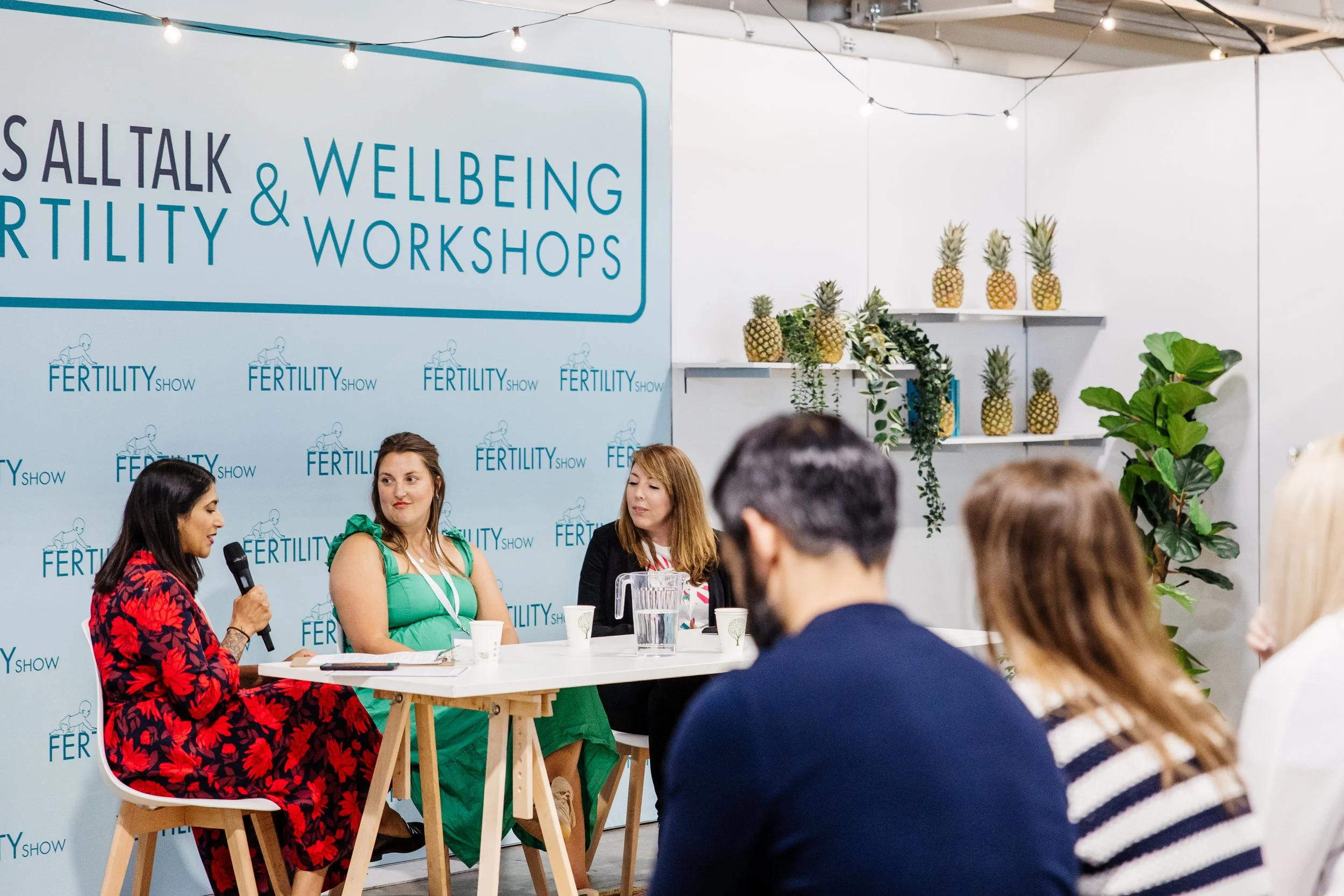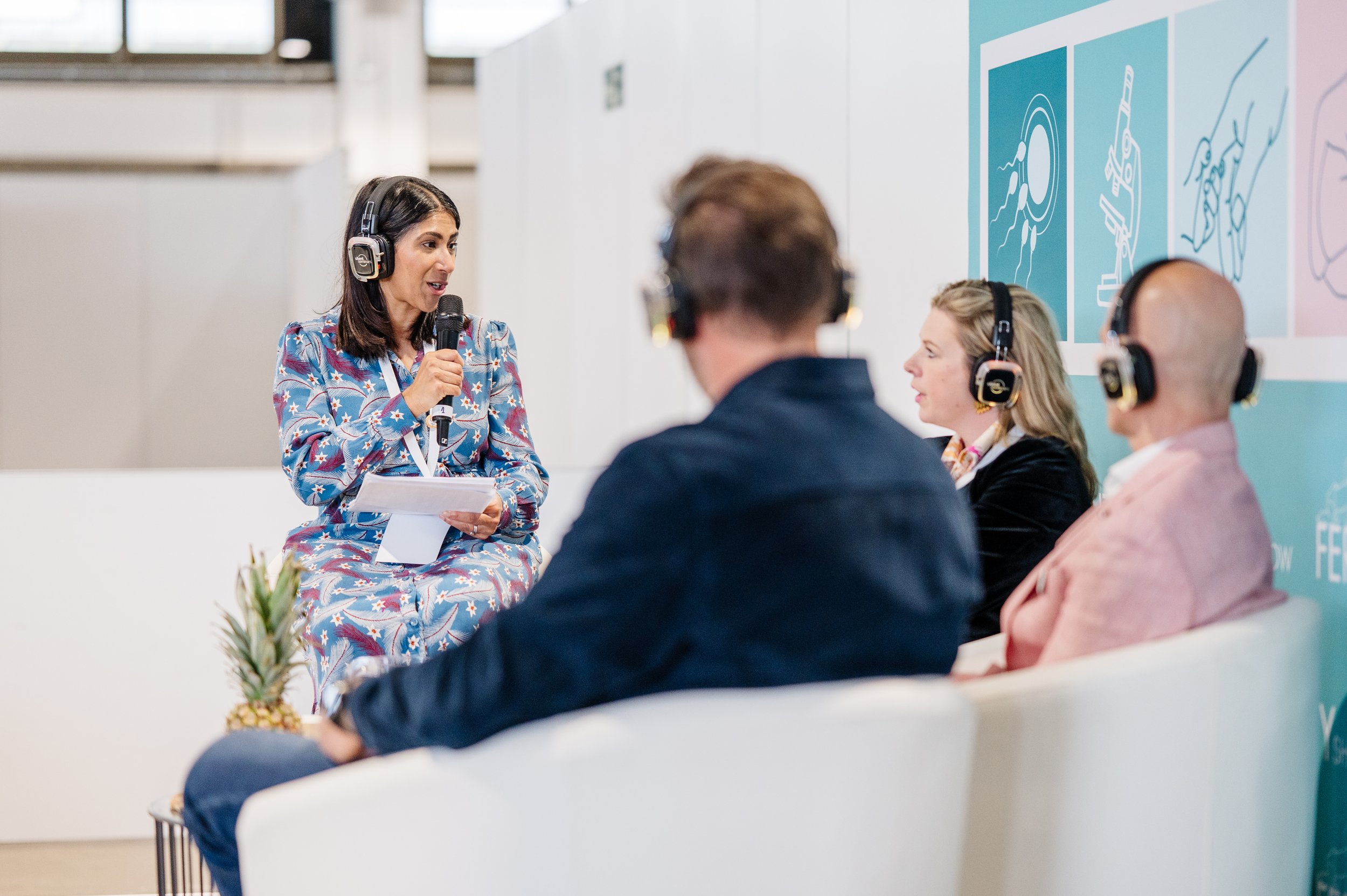Real Stories, Renewed Hope: What Makes The Fertility Show So Powerful
By Seetal Savla
For anyone who has just started their fertility journey, is exploring alternate paths to parenthood or wants to learn how to better support those who are struggling to conceive, there’s nowhere quite like The Fertility Show. With world-renowned fertility experts, UK-based and international clinics, holistic and mental wellbeing practitioners and honest panel discussions with former and current patients all under one roof, it’s the best place to learn, be inspired and feel hopeful about the future.
Although my own journey ended several years ago, I love returning to the Show as a seminar host to hear about the latest medical advancements, chat to my fellow fertility advocates about their work and connect with attendees by sharing my experiences and listening to theirs.
This year, I also hosted some sessions in the Let’s all Talk Fertility Lounge (LATF), a welcoming space for the real-life stories behind the various pathways. Like myself, many of the advocates speak about their challenges retrospectively, which allows us to distance ourselves from the difficult moments to a certain degree. However, for those who are in the fertility trenches so to speak, they’re sharing from the wound, not the scar, so everything feels much rawer. Their emotions are never too far from the surface. It was very humbling to interview people like Chelsea Howard, who is open about suffering from postnatal depression after her daughter was born and is now trying for a second baby. Then there were best friends and podcast co-hosts Amber Izzo and Annabel Gurnett. The former has recently started her fourth IVF cycle in the hope of having a sibling for her son while the latter is rebuilding herself after multiple failed cycles. Their conversation about navigating their close friendship when one has a successful outcome and the other experiences the opposite was incredibly powerful and poignant. I have no doubt that these ladies, and everyone who spoke in the LATF Lounge over the weekend, gave audience members the encouragement, strength and hope they need to pursue their family-building dreams.
In the future, it would be wonderful to see more diverse panels. While more male advocates are joining the conversations, we’re still missing valuable insights from those from different ethnic backgrounds. Including the viewpoints of Black and brown people from LGBTQIA+ communities is also essential to be more inclusive. However, with so few people sharing their stories for various reasons, this will take some time.
Once again, emotional support was also provided via the Wellbeing Workshops, sessions led by experts offering practical strategies for coping with the highs and lows of a fertility journey. In previous years, they were held in a separate space, which created a much-needed moment of calm in the middle of a bustling Show. For 2025, both areas were combined to give more people the opportunity to pull up a pew. Even though it was an open space, the team succeeding in maintaining the intimate atmosphere needed for these sensitive exchanges.
Alongside acknowledging the emotional and mental load of trying to grow a family, the Show is also the ideal place to explore the medical and holistic options available at present. With seminars covering topics like fertility testing, lifestyle changes, undergoing treatment abroad, alternate routes to parenthood, egg freezing, fertility for over 40s and more male fertility, attendees leave each session armed with evidence-based information from trustworthy experts, plus personal perspectives from advocates. One of this year’s highlights was a Q&A with the pioneering surgeons behind the UK’s first uterus transplant, Professor Richard Smith and Miss Isabel Quiroga. For any women born without a womb or for those who have lost theirs due to illness, this surgery is an enormous source of hope.
This will be the first session I watch when I play catch-up with every seminar and discussion I missed via the Show’s digital platform. Making this valuable content available online was a great move because not only can in-person ticket holders watch the sessions they couldn’t attend live (included in their ticket price), those who were unable to visit the Show can now purchase a digital ticket here to get access to all the replays on demand (available until the end of July).
Attending this two-day event can be overwhelming for many, so knowing that they have a couple of months to watch the talks at their own pace is reassuring. The conversations in the LATF Lounge from this year and the past two years are also available as a podcast (search for ‘Let’s all Talk Fertility’ with Sophie Sulehria). Unlike the digital platform, the 30-minute episodes can be accessed at any time.
Having been involved with the Show for four years, I’ve seen how it has evolved to consider all aspects of the family-building journey. Stands promoting clinics now rub shoulders with ones offering mental health services, acupuncture and reflexology, making current and prospective patients feel more like a valued human being and less like a walking credit card.
When I first walked through the doors as a patient in 2019 after three failed IVF cycles, my husband and I were considering pursuing donor conception. Listening to how the advocates made their decisions and coped with the challenges they faced before and after having their children gave me the confidence to move forward with this path. We also met the man who would become our favourite consultant at our third and final clinic. The Show has therefore given me so much and I’m grateful to be able to give back by sharing my story to support others and represent the South Asian community.




